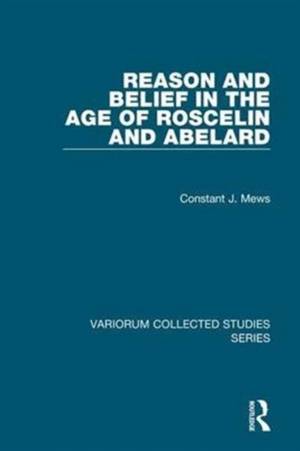
- Afhalen na 1 uur in een winkel met voorraad
- Gratis thuislevering in België vanaf € 30
- Ruim aanbod met 7 miljoen producten
- Afhalen na 1 uur in een winkel met voorraad
- Gratis thuislevering in België vanaf € 30
- Ruim aanbod met 7 miljoen producten
Zoeken
Omschrijving
The previous collection by Constant J. Mews focused on the work and thought of Peter Abelard (1079-1142); the present volume looks more broadly at Abelard's intellectual and religious context in the Latin West, and at his teacher, the controversial nominalist philosopher and theologian, Roscelin of Compiègne. It opens with surveys of educational theory and practice in the 12th-century schools. Mews next explores the widespread movement in the period which sought to explain religious belief in terms accessible to reason, and the background to accusations of heresy made by monks troubled by new attempts to interpret Christian belief, both within and outside a school environment. Five related studies then deal with previously unedited texts by Roscelin of Compiègne and St Anselm that throw new light on the importance of the philosopher and theologian who exercised a major influence on Peter Abelard.
Specificaties
Betrokkenen
- Auteur(s):
- Uitgeverij:
Inhoud
- Aantal bladzijden:
- 352
- Taal:
- Engels
- Reeks:
Eigenschappen
- Productcode (EAN):
- 9780860788669
- Verschijningsdatum:
- 24/07/2002
- Uitvoering:
- Hardcover
- Formaat:
- Genaaid
- Afmetingen:
- 149 mm x 224 mm
- Gewicht:
- 630 g

Alleen bij Standaard Boekhandel
+ 443 punten op je klantenkaart van Standaard Boekhandel
Beoordelingen
We publiceren alleen reviews die voldoen aan de voorwaarden voor reviews. Bekijk onze voorwaarden voor reviews.











